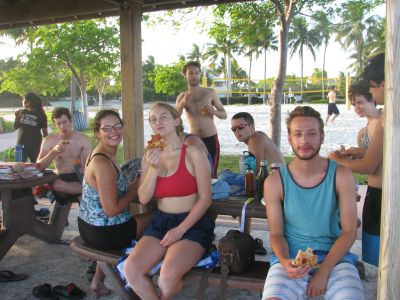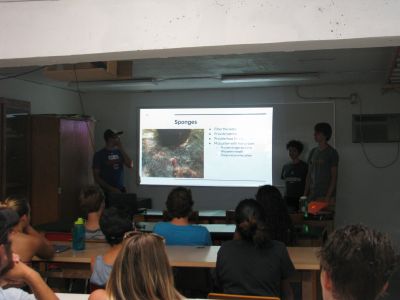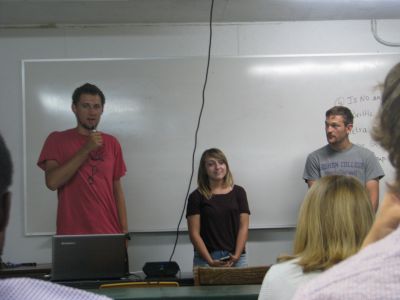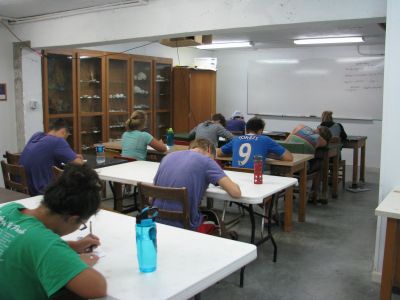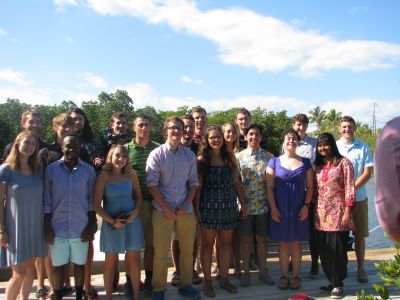I am writing this final post from the comforts of home. The entire class has safely made it back from Florida. The last two days in Layton were very busy as students completed final projects and took the final exam.
The Film students worked in two groups to complete a 3 minute film. Each film included two different interviews to demonstrate a topic that will be included in the larger documentary film they will complete in the fall semester. Takoda, Tim, and Tabitha focused on the education students receive at the marine station, while Riley, Andrew, and David demonstrated some of the many differing views on the changes occurring in the ocean. We were all impressed with the quality of their work as well as the many details and decisions (and hours!) that are necessary to produce a quality film.
Marine students also presented their work on the following projects: The Effect of Sediment Composition and Depth on Seagrass Diversity and Density in Coastal Marine Systems – Joel Gerig, Naomi Peters, Lauren Wenger; Regrowth Rates of Chondrilla caribensis in a Rhizophora mangle Canal and Effects of Low Tide Exposure – Christian Gehman, Lars Hovde, Molly Zook; Determining how Thalassia testudinum density affects populations of gastropods in Long Key – Luke Geiser, Martin Gerig, Delphin Monga; and The effect of Porifera location (isolated or associated with mangroves) on population density and species richness of inhabitant Ophiuroid species in Long Key – Jose Chiquito Galvan, Corrie Osborne, Natalie Thorne.
After presentations, students worked diligently to store materials and clean the research station. We then enjoyed a pizza supper and beach volleyball before returning to the lab for key lime pie and sharing highlights of our marine experience. What a wonderful group of students! I enjoyed working and spending time with them.
Here are some final thoughts from the students:
“This class made me more aware of how the ocean’s ecology differs from the terrestrial environment… The way in which pollution has farther reaching effects really hit me… Waste is spread in the ocean and affects everything due to its openness. It will take global clean up and sustainability efforts on a scale not seen before to keep our oceans clean and healthy in the future.” – Martin Gerig
“I enjoyed how the class itself allowed all the students to be more expressive in their enjoyment of learning. The learning environment tore down our socialized norms of sitting and being quiet. Learning became the embodiment of fun and joy when we found something cool – whether a baby dolphin or the tiniest gastropod.” – Joel Gerig
“I have been continuously amazed by the extreme diversity inhabiting these waters and the way organisms interact with one another.” – Molly Zook
“I feel more responsible for the marine system than I was before.” – Delphin Monga
“The marine environment is so much more complex than I thought. It seems every square inch of water has something living in it. We found organisms I would have never seen while snorkeling.” – Lauren Wenger
“Because you are basically living in the water, you begin to realize the effect you can have on the marine system, much more so than just hearing about it. I also learned a lot about conducting research, both from older students with more experience and from having to go out every day and figure out how to collect meaningful data.” – Christian Gehman





